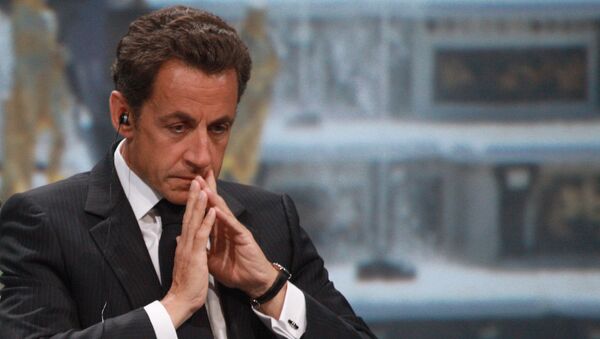Nicolas Sarkozy has ensured that he will be remembered in France for more than his stunning wife, Carla Bruni. Now the president will surely be associated in popular memory with the massive strikes sparked by his move to increase the pension age from 60 to 62.
The controversial vote on pension reform was postponed twice, on October 15 and then 20, before the Senate eventually passed the bill yesterday, October 22. Sarkozy's supporters in parliament had urged him to give them at least one more week to debate the reforms, but the president refused, despite the growing public discontent.
If protests were rated like Michelin rates restaurants, the current strikes in France would get the highest mark, three stars. Always quick to take to the streets, the French are showing the Greeks how it's done. What's more, the protests in Greece this past summer were a response to immediate cuts in salaries and social benefits, while pension reforms will take effect years from now.
Demonstrations have been raging in France since June. There have already been several days of nation-wide strikes, shutting down railroads, oil refineries and public offices. Students eagerly locked arms with the adults, apparently driven by the popular slogan, "Pensions before arthritis," and a Gallic tendency to avoid work whenever possible.
Why are the French so up in arms? Similar reforms are currently underway in Britain and are sure to extend to other European countries, including Russia.
In May 2007, Sarkozy was elected president with a convincing 53% of the vote. Since then, Sarko's popularity has plummeted to less than 20%.
But the French have nobody to blame but themselves. During the campaign, Sarkozy promised to crack down on illegal immigration, which the majority welcomed, but he also vowed to change France, the French character and the French way of thinking and living, to teach the French to work harder and to cut their vacations, which are the longest in the EU, and not to sponge off the taxpayer.
Famous for their concern (to put it mildly) for their own financial wellbeing, the French did not quite understand - or refused to believe - that Sarkozy intended to deliver on his promises to cut spending, in part by reforming the pension system.
Under the newly approved reform bill, the retirement age in France will be raised from 60 to 62 by 2018, and the age of full pension eligibility from 65 years to 67. This is not a drastic increase. Britain plans to increase the pension age, which is currently 60 for women and 65 for men, to 65 for everyone in 2020.
Compared to the harsh austerity measures taken recently in Iceland, Britain, Greece and Spain, the French have it easy. They retire earlier than their peers in Spain, Britain, Italy, Germany, Greece, the United States and Japan, and they don't seek post-pension employment. But the shortfall in France's pension fund is growing at an alarming pace and could bankrupt the fund by 2015.
Of course, the French government is not paying pensioners with its own money; it essentially pays pensioners back the money they have been contributing from their paychecks for over 40 years. The public believes - and not without a reason - that if there is not enough money in the fund, the government, both past and present, is to blame for not investing wisely. The public is also outraged that banks were given billion-dollar bailouts during the crisis, while the pension fund got nothing.
Still, this is not the reason why the French are burning cars and barricading gas stations. They are not so radical as to reject any and all reforms, even painful ones. The French usually accept them in the end, however hard they protest. The problem appears to be Nicolas Sarkozy himself. The French are not protesting pension reforms; they are protesting Sarkozy.
Sarko has turned a majority of the French against himself with his hypocrisy. He does not hide his love of luxury, money, himself and his beautiful wife, all the while encouraging the people to work harder and take shorter vacations. The first thing he did after taking office was to increase his salary by 140% and to cut his own taxes. I don't think any nation would stand for that.
Sarkozy is not the right kind of man to change the French, their mentality and lifestyle. Sarkozy is less Napoleon than Louis XVI on the eve of the French Revolution. King Louis just could not understand why his subjects were so angry. The 23rd president of the Fifth Republic will not lose his head, but he may lose his shot at a second term in 2012. The opposition Socialist Party has already promised to return the retirement age to 60 when it takes power.
The views expressed in this article are the author's and do not necessarily represent those of RIA Novosti.

